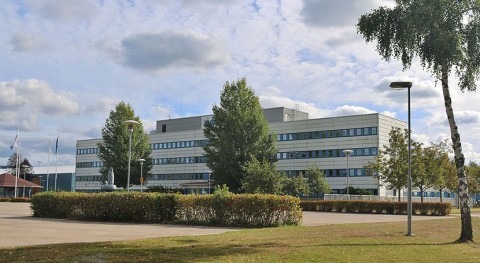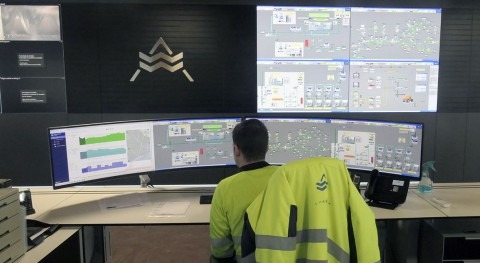Digital solutions are enabling dramatic financial and operational improvements through better system controls, more efficient monitoring and diagnostics, more targeted investments, and a transition to a holistic model for system management.
At Xylem we call this new approach to water management 'Decision Intelligence'. We have identified key areas of utility management that can benefit materially from decision intelligence. For those entrusted with the responsibility of supplying vital water and wastewater services to their communities, it is both the worst and the best of times.
It is the worst of times because water challenges are intensifying, stressing infrastructure that is already badly in need of renewal. Around the world, the water system’s vital signs, including leakage, main breaks, and waste water overflows, reflect a system in urgent need of investment. Yet we cannot simply spend our way out of these challenges, regardless of how they are financed, without intensifying the burden on struggling ratepayers.

It is worth comparing the water sector’s strategic situation to the health care system. Most of us can imagine what a world class health care system might look like. It would emphasize preventative care, since good hygiene, diet, exercise and health monitoring improve personal health and prevent disease at very low cost. It would utilize powerful and efficient diagnostic processes, from the stethoscope to the CT scan, to screen for signs requiring further attention. It would target medical interventions, affecting only those areas that need it and leaving healthy tissue and systems intact.
By contrast, we all know what doesn’t work: neglecting regular health maintenance and responding to health issues only when they erupt, often in the emergency room at moments of crisis. We’ve seen in too many countries that this model is both unsustainably expensive and does not improve long-term health.
These same truths apply to the water sector. Around the world, water and waste water infrastructure suffers from long-deferred maintenance. Much of it is underground and out of sight and has never been inspected to assess its overall health. The interventions we do take, such as pipe replacement, are either reactive and driven by emergencies, or overly severe, ripping out serviceable assets every year at tremendous expense and disruption. This approach to managing water infrastructure is not always in the best interests of the system, or of the users who depend on it for affordable and reliable services.
The water system’s vital signs, including leakage, breaks, and overflows, reflect a system in urgent need of investment
The good news is that there is an emerging consensus around a better way. Advances in digital technologies are enabling better system hygiene, more efficient monitoring and diagnostics, more targeted investments, and a transition to a 'primary care' model for system management. These solutions are poised to make this the best of times for utility managers who want to make a lasting difference in the lives of the communities they serve.
This new approach is called 'Decision Intelligence'. It leverages the power of data to inform better system-level choices today and make recommendations to improve future operations, maintenance and capital planning. These solutions scan, predict, recommend and prioritize actions and help utilities make dramatic progress on the problems that matter most to the communities they serve: water accessibility, environmental sustainability, resilience, and affordability.
Decision intelligence describes the use of advanced data analytics to empower water system operators to make the best capital and operating decisions.

This approach has three key principles:
- It is about solving problems, not about new technologies. Information only creates value when it helps decision-makers solve specific operational or financial challenges.
- Orchestration of technologies to provide users with an integrated package of sensors, models, and visualization tools to solve specific problems in a holistic way, to answer a specific need.
- They process information from a wide variety of sources; they are able to get information from a variety of systems and providers, including systems the utility has already acquired, leveraging existing and future investments to answer new questions.
It is still early, but increasingly more utilities across the world are leveraging data to offer unprecedented value to their communities. Ultimately, our approach supports our clients' commitment to the public service, solving problems according to their scale and using the best available technology, and offering a unique opportunity in life: 'solving water related problems' in communities across the world. We can harness the power of decision intelligence based on six connected strategies, to address the critical challenges of utilities and further economic and environmental gains with advanced infrastructure analysis.
Greater decision intelligence, through comprehensive offers that comprise the entire water cycle, can help optimise water management
Strategies driven by decision intelligence
The six connected strategies prioritised by Xylem include:
- Reduce non revenue water through real time monitoring of active leaks with acoustic techniques, advanced analyses and metering with no service interruptions and environmental benefits.
- Proactive asset management, with a comprehensive assessment of system condition, real time detection and data on the status with advanced analyses to optimise asset management expenditure.
- Ensure water quality from source to tap, with optimal control mechanisms to ensure effective delivery of high quality water to the end user with state-of-the-art technology.
- Address water equity in a systematic way with better data analysis, modern communications, hardware intelligence and 'open architecture for affordability'.
- Urban water management with coordinated real-time control of gates, valves, pumps, and tanks: the total effective capacity of the system can be increased with little or no construction of additional infrastructure, with smart pumping systems (IoT) and reducing energy costs with optimised treatment systems.
- Data deluge control, with cross-enterprise integration and modular applications architecture, can enable utilities to select and add new software applications à la carte, while also leveraging the existing investments they have made in technology.
All of these solutions together can provide a roadmap to unlock the value of water information and make water and waste water services available everywhere in the world.
Greater decision intelligence, through comprehensive offers that comprise the entire water cycle, can help optimise water management, make water more affordable and accessible to all people they provide services for, and make communities more resilient and sustainable.
Xylem continues to work to change the discussions in the water sector and build a body of knowledge to help water managers everywhere in the world leverage the opportunities that digital technology offers.


















